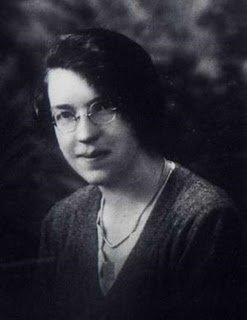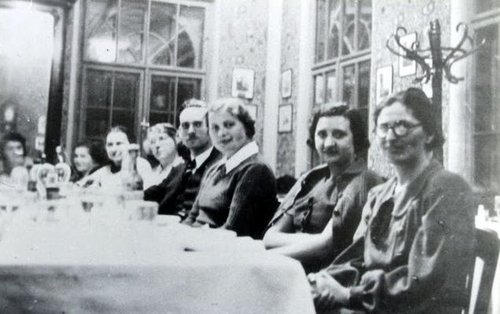Aaron Stevens, pastor at St. Columba’s Presbyterian Church in Budapest, a congregation historically linked with the RCH, shared his thoughts on Jane Haining and her legacy of tolerance. The article was published last summer in the newspaper of the World Mission Council of the Church of Scotland. Haining was a missionary from the Church of Scotland who dedicated her life to the service of Jewish and Christian alike. She was taken to and later executed in Auschwitz during World War II.
Published in World Mission Aug-Sept 2012 (Issue 48), newspaper of the World Mission Council of Church of Scotland
As I write these lines about Jane Haining, we at St. Columba's, Budapest are right in the middle of our English Language Day Camp, our summer mission. Although all the children who participate now call Hungary home, only some of them were actually born here. Others come from such places as Iraq, Afganistan, Sri Lanka, or the United States. They also represent Christian, Jewish, and Muslim traditions.
Much of our reading of Bible stories, singing of songs and simply playing takes place in Webster Hall, where there are two plaques commemorating Jane Haining. The other day I noticed one 12-year-old girl, whom I'll call Rose, reading those plaques. Her family, Muslims, fled their predominately Muslim country to seek asylum in Hungary. I ask her if she understands the plaques, if she knows about Jane Haining. She shakes her head and clearly wants to know more.

With all the commotion of children in summer around us, what can I tell her? Do I start with how Scots originally set on evagelising among Jews in Palestine had to return to Scotland due to an injury one of them suffered when he fell off a camel, and how on their journey via the Danube they stopped in Budapest? Do I mention to her that at that time, in 1838, the Hapsburg monarchy was not encouraging of Protestant initiatives, but that the Lutheran Dutchess Maria Dorothea (whose picture can be found in one of the meeting rooms at 121) invited the Kirk to establish a mission in Budapest under her protection? As I tell Rose our history, there is a danger of my getting lost in historical detail, but it does seem important that this Scottish Mission in Hungary was started by Scots at a Hungarian invitation, and that the cooperation begun then continues to this day. The plaques she is reading are in Hungarian and English.
Although St. Columba's and the Vörösmarty School are now two separate institutions, when our massive building was erected in 1910, the Scottish Mission was one. Among school memorabilia, I can see a letter written by Margit Prém, Jane's friend who was the director of the school. In the letter, Margit is reminding the staff that whatever the circumstances of the world around them, the Scottish Mission is to be a safe place for Jews as well as Christians. It is so clear that the work of the mission was carried out by Hungarians as well as Scots, and the spirit of tolerance was shared.
I cannot explain Jane Haining's story to Rose without speaking of her death. Does the term "Auschwitz" mean anything to young people in her country?
Do I tell her that when the school was nationalised in 1950, the part we now use was reserved for the church's use, but that, as missionaries from Scotland could not come during the Communist era, the work of the Scottish Mission was carried out by Hungarian Reformed ministers? Even today, my ministry in Budapest is now shared with a Student Associate Minister appointed by the Reformed Church in Hungary. But if go into this with Rose, how am I to explain that the Hungarian Reformed appointee at the Scottish Church is a woman from Kenya!?

Jane Haining pictured in the middle with the white collar along with her fellow teachers
Rose knows this "Hungarian" Student Associate, because Njeri as been leading the singing and Rose's small group. I get the impression the labels of nationality don't matter that much to Rose. She is absorbing the spirit of the camp. Even though she is not a Christian, she has been translating for other refugee members of her small group, and told us that she reads the New Testament at home because she would like to be more informed. This girl asking about Jane Haining reminds me in so many ways of the girls with whom Jane Haining worked.
But I must answer her question, and to be realistic, I have to keep it short. I tell her that this school used to be a place where Jewish girls and Christian girls lived and learned together, and that Jane Haining cared for those girls. I tell her that because of her work here, Jane Haining was taken away with Jews and others to a place called Auschwitz, where many people were killed during the war. Because of respect for her memory, I explain, the church and the Jewish community put up these plaques.
Rose seems a bit confused, "Was Jane Haining Jewish?" she asks.
"No," I reply. "She was a Christian, but she loved the girls the same whether they were Christian or Jewish."
Rose nods with a smile, looking around. A Muslim at a Christian Day Camp, sent to us by the Refugee Mission of the RCH, she understands, quite possibly better than I do.
Rev. Aaron Stevens